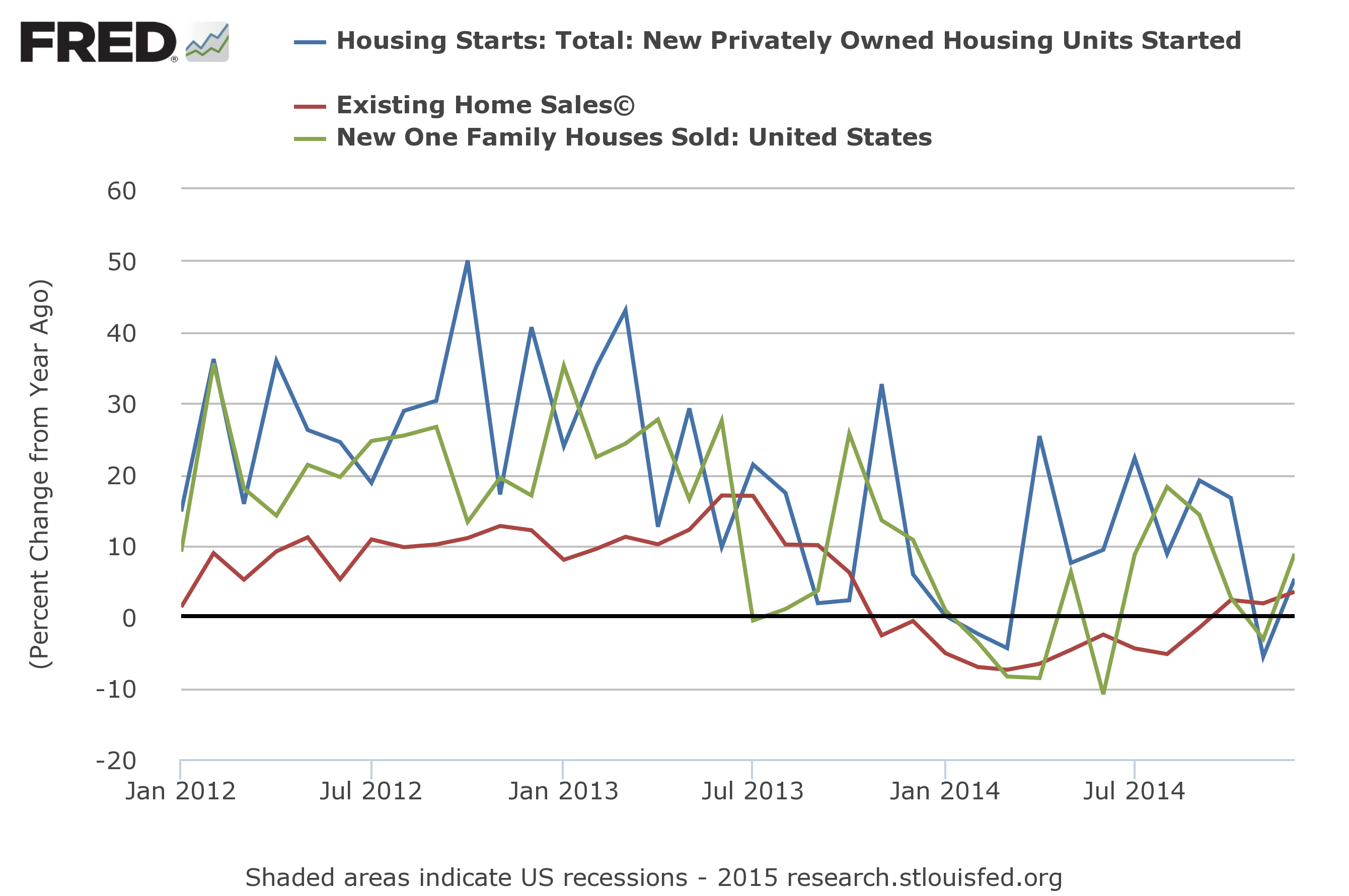Housing remains a weak spot for the US economy, as suggested by yesterday’s news of a bigger than expected tumble in December’s pending Home Sales Index, a forward looking measure of demand. The National Association of Realtors (NAR) said that the benchmark slid 3.7% last month. The year-over-year trend looks better, with the latest data showing the fourth straight month of growth in annual terms. There’s also room for mild optimism due to the recent fall in mortgage rates and upbeat numbers in the labor market. But as we’ll see, the sluggish profile in housing of late reflects that it isn’t limited to pending sales data.
The last year or so has witnessed a substantial deceleration in the annual pace of sales of new and existing homes along with new residential construction activity. All three have been mired in alternating phases of mild declines and slow growth on a year-over-year basis over the past 12 months, in contrast with the robust gains in 2012 and early 2013. The good news is that this trio ended last year with a bit of strength (the chart below reflects data through Dec. 2014). All three data sets posted modest year-over-year gains last month, a relatively rare instance of across-the-board strength for these numbers in 2014.

It’s still unclear if the housing market’s deceleration is a normal part of the maturing process that’s an inevitable part of every cycle or something darker. One reason to expect modestly better comparisons in the months ahead: falling mortgage rates. The national average for the 30-year fixed mortgage has been under 3.70% in recent weeks, according to Freddie Mac’s survey data, the lowest rates since May 2013.
The sharp gains in new mortgage applications in recent weeks suggest that lower rates are having an effect on demand, although mostly in the form of refinancing so far. Meantime, the number of applications had slid 3.2% last week, according to the Mortgage Bankers Association, but the mild retreat follows huge gains. “A 3.2 percent weekly decrease, after the two gigantic previous increases, leaves the (mortgage loan applications) index in stellar territory,” notes Matthew Graham of Mortgage News Daily.
The recent acceleration in the growth rate for US payrolls is another bright spot in the economy that implies that demand for housing will perk up in the spring. Last week’s dramatic fall in jobless claims suggests that we’ll continue to see encouraging numbers for the labor market. As an added bonus, US consumer confidence rose sharply in December, reaching its highest level since 2007, according to the Conference Board. “A more positive assessment of current business and labor market conditions contributed to the improvement in the consumers’ view of the present situation,” says The Conference Board’s Lynn Franco. “Consumers also expressed a considerably higher degree of optimism regarding the short-term outlook for the economy and labor market, as well as their earnings.”
The foundation for a stronger housing market is in place, or so it seems. But optimism in this corner of the economy is still muted. The residential real estate market will probably be a mild net positive for the US macro trend in the coming months ahead. But expecting anything more remains a debatable subject.
